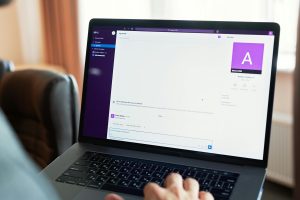Mastering Personal Budgeting: Simple Steps to Financial Freedom
In today’s fast-paced world, managing personal finances has become more challenging than ever. With the rise in living expenses and the constant temptation of consumerism, it’s easy to fall into a financial trap. However, mastering personal budgeting is the key to achieving financial freedom and living a stress-free life. By taking the time to understand your spending habits and creating a solid budget plan, you can effectively control your finances and work towards your financial goals. In this article, we’ll explore some simple steps you can take to master personal budgeting and achieve financial stability. 
Understand Your Income and Expenses
The first step towards mastering personal budgeting is knowing your income and expenses. Start by creating a spreadsheet or using budgeting apps to track your monthly income. This includes your salary, bonuses, investments, and any other sources of income. Once you have a clear understanding of your income, it’s time to analyze your expenses. Create categories for your expenses such as rent/mortgage, groceries, utilities, transportation, entertainment, and so on. This will give you a clear picture of where your money is being spent.
Analyze Your Spending Habits
Maintaining a budget is impossible without tracking your expenses. After identifying your spending categories, take a closer look at each of them. Are there any areas where you are overspending? Can you cut back on unnecessary expenses? Look for ways to reduce your expenses without compromising your lifestyle. This could mean switching to a cheaper phone plan or cooking at home instead of eating out. By analyzing your spending habits, you’ll be able to identify areas where you can save money and allocate it towards your financial goals.
Create a Realistic Budget Plan
Based on your income and expenses, create a monthly budget plan that reflects your goals and financial objectives. Your budget should include your fixed expenses such as rent, bills, and debt payments, as well as variable expenses such as groceries, entertainment, and savings. Be realistic and don’t set goals that are too difficult to achieve. It’s important to leave some room for unexpected expenses and emergencies. In addition, make sure to review your budget regularly and make adjustments when necessary.
Eliminate Debt
One of the biggest obstacles to achieving financial freedom is debt. Whether it’s credit card debt, personal loans, or student loans, paying off debt should be a top priority. Start by creating a debt payment plan and sticking to it. Consider consolidating high-interest debt and negotiating with your creditors to lower your interest rates. This will allow you to pay off your debt faster and save money in interest charges. By eliminating debt, you’ll have more money to save and invest towards your future financial goals.
Save for the Future
Financial freedom is not just about having enough money to cover your expenses. It’s also about being financially secure for the future. Make sure to allocate a portion of your income towards savings and investments. Set up an emergency fund that can cover at least 3-6 months of expenses. This will protect you from unexpected events such as losing your job or a medical emergency. In addition, start planning for retirement as early as possible. Consider investing in a 401(k) or an IRA to ensure a comfortable retirement.
Be Consistent and Stay Disciplined
Mastering personal budgeting is not a one-time task. It requires consistency and discipline. Make budgeting a habit and track your expenses regularly. Avoid impulsive purchases and stick to your budget plan. Keep track of your progress and celebrate your milestones. By staying consistent and disciplined, you’ll be able to achieve financial freedom and live a stress-free life.
In conclusion, mastering personal budgeting is not rocket science. It’s about understanding your income and expenses, analyzing your spending habits, creating a realistic budget plan, and staying disciplined. By following these simple steps, you’ll be on your way to achieving financial stability and living a comfortable life. Remember, financial freedom requires patience and commitment, but the rewards are definitely worth it. Start taking control of your finances today and work towards a brighter financial future.










